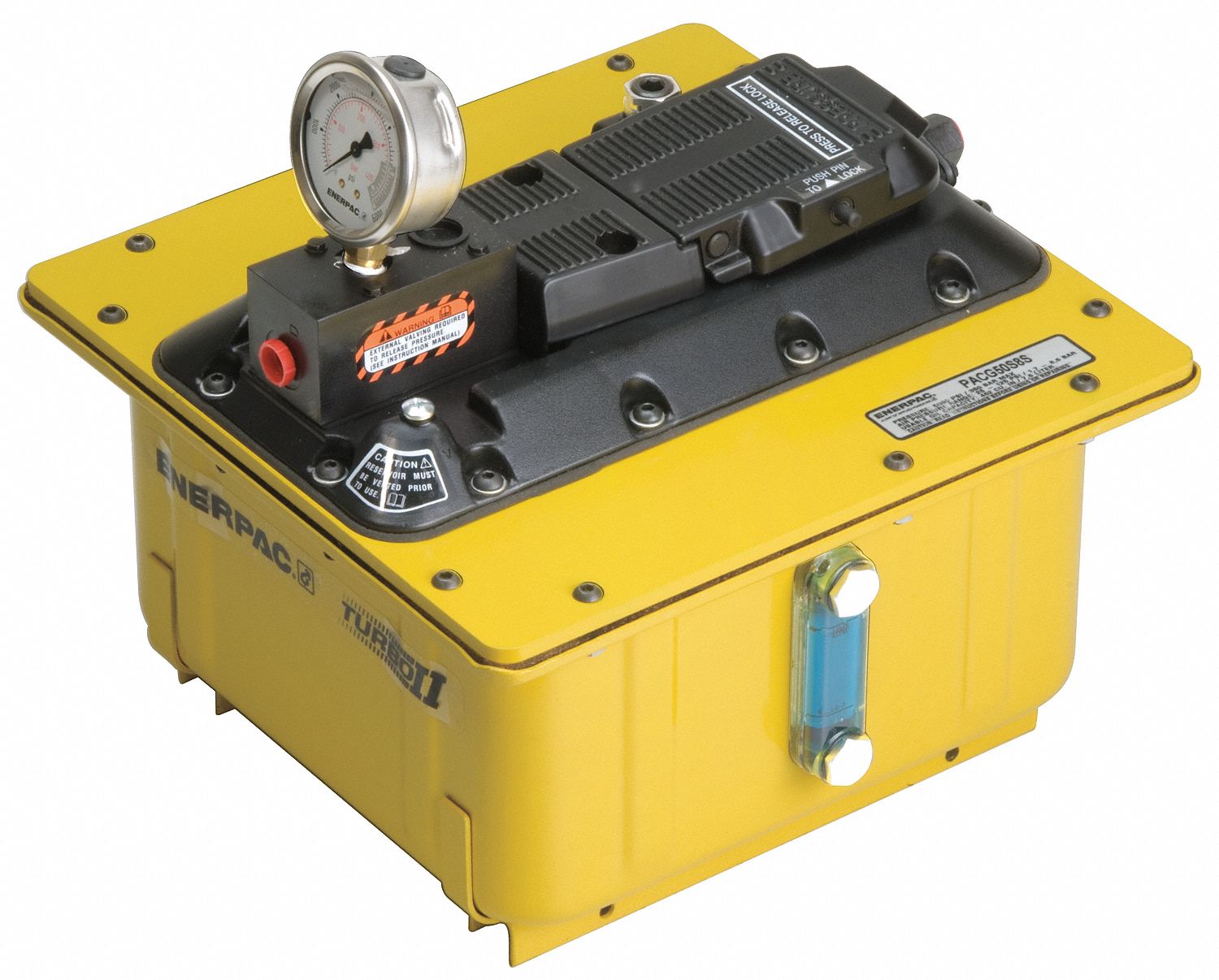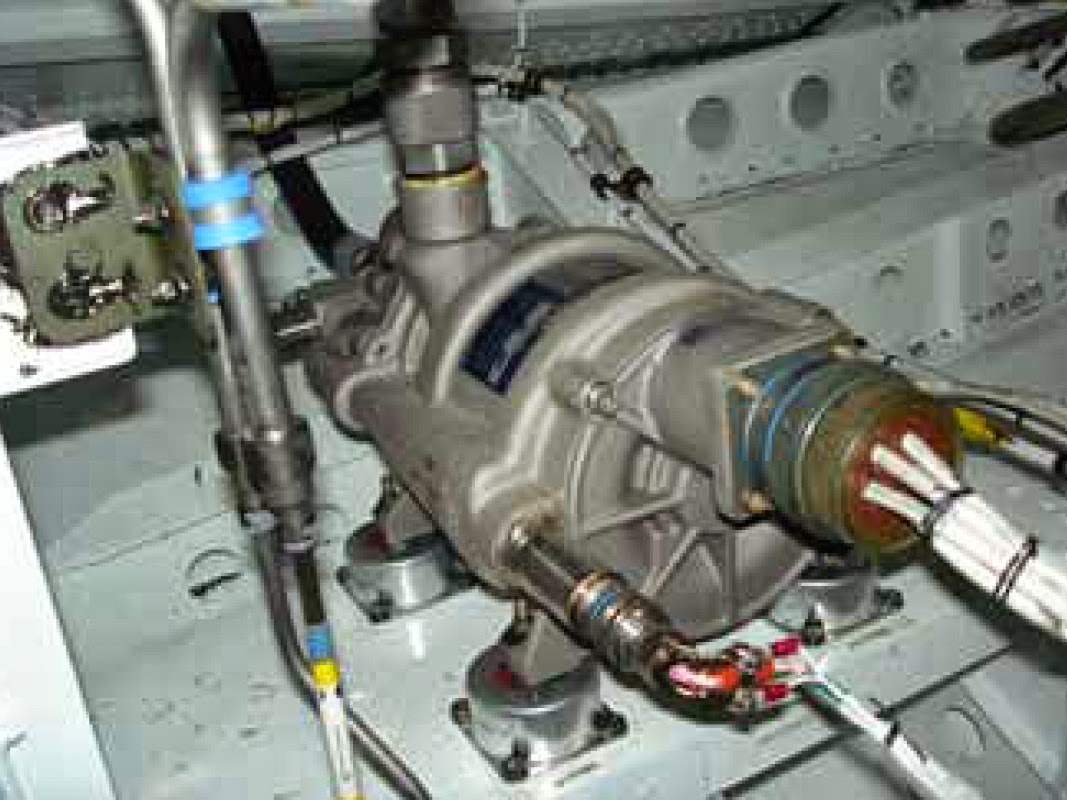Unlocking Power: The Versatility of Air Driven Hydraulic Pumps
Imagine needing to lift a heavy load, but lacking the physical strength or the complex machinery to do so. This is where the power of fluid dynamics comes into play, specifically through devices like the air driven hydraulic pump. These pumps represent a clever fusion of pneumatic and hydraulic technologies, offering a unique solution for generating high hydraulic pressure using readily available compressed air.
An air driven hydraulic pump, also known as a pneumatic hydraulic pump, utilizes compressed air as its power source to pressurize hydraulic fluid. This pressurized fluid then acts upon a hydraulic cylinder or other actuator to perform mechanical work, such as lifting, pressing, or clamping. This process allows for significant force multiplication, enabling relatively low air pressure to generate extremely high hydraulic pressure. This characteristic makes these pumps incredibly versatile and applicable in diverse settings, from industrial manufacturing and construction to automotive repair and specialized testing equipment.
The concept of utilizing air pressure to amplify force dates back centuries, but the modern air driven hydraulic pump emerged with the advancements in hydraulic and pneumatic technology during the industrial revolution. As industries demanded more efficient and powerful tools, the need for compact and powerful pumps became paramount. Air driven hydraulic pumps filled this niche, providing a readily deployable solution that leveraged the existing compressed air infrastructure often found in factories and workshops. These pumps have been instrumental in streamlining various processes, from powering heavy machinery to facilitating precision movements in automated systems.
The significance of the air driven hydraulic pump lies in its unique capabilities. They offer a higher power-to-weight ratio compared to electric pumps, making them portable and adaptable to different environments. Their ability to operate in hazardous locations, due to the absence of electrical sparks, further enhances their value. However, these pumps are not without their challenges. One main issue involves the potential for leakage, both in the air and hydraulic circuits, which can lead to inefficiency and potential environmental concerns. Proper maintenance and selection of appropriate seals are crucial to mitigate these risks.
In essence, an air powered hydraulic pump operates on a simple yet powerful principle. Compressed air enters the pump and drives a piston or diaphragm, which in turn displaces hydraulic fluid. This displacement generates pressure in the hydraulic circuit, transferring power to the actuator. The ratio of air pressure to hydraulic pressure is determined by the pump's design and can range significantly. For example, a 10:1 ratio means that 100 psi of air pressure can generate 1000 psi of hydraulic pressure. This amplification is the key to the pump's ability to perform demanding tasks.
One benefit of using an air driven hydraulic pump is its portability. Since they are often smaller and lighter than electric hydraulic pumps, they can be easily moved and utilized in various locations. For instance, in a construction setting, a worker can easily transport a pneumatically driven hydraulic pump to power a jackhammer or a concrete cutter, eliminating the need for extensive power cabling. Another advantage is their safety in hazardous environments. Because these pumps don't require electricity, they eliminate the risk of sparks, making them suitable for use in areas with flammable gases or liquids, such as oil refineries or chemical plants.
Advantages and Disadvantages of Air Driven Hydraulic Pumps
| Advantages | Disadvantages |
|---|---|
| Portability | Air consumption can be high |
| Safety in hazardous environments | Sensitivity to air quality |
| High power-to-weight ratio | Potential for pulsating flow |
In conclusion, the air driven hydraulic pump stands as a testament to the ingenuity of engineering, combining the advantages of pneumatic and hydraulic systems to deliver a powerful and versatile tool. From lifting heavy loads in industrial settings to powering delicate instruments in laboratories, these pumps play a vital role across diverse industries. While challenges like leakage and air consumption need to be addressed through proper maintenance and system design, the benefits of portability, safety, and high power output make air driven hydraulic pumps an indispensable asset in numerous applications. As technology continues to evolve, further advancements in pump efficiency and control systems will undoubtedly solidify the air driven hydraulic pump’s position as a critical component in the future of power transmission. Understanding the principles of operation, the benefits, and the best practices for utilizing these pumps will empower users to harness their full potential and optimize their application across various fields.
Unlock coastal calm with sherwin williams tradewinds paint
Revitalizing history exploring the world of ironwork restoration
New jersey cars craigslist navigating the garden states auto bazaar













